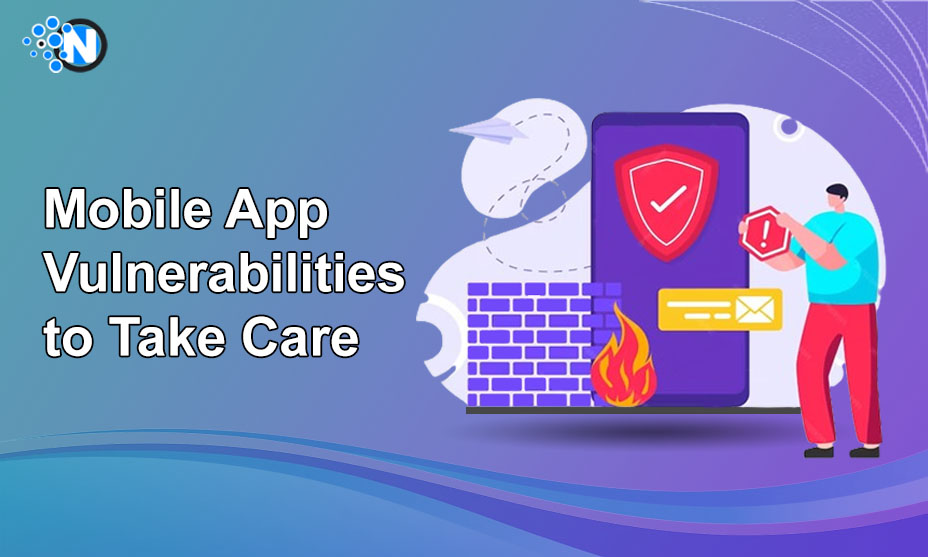Mobile App Vulnerabilities to Take Care in 2024

In 2024, mobile apps continue to be integral to our daily routines, serving as gateways to convenience and connectivity. As their use becomes more prevalent, so does our need for mobile app security. 2024 presents us with an ever-evolving set of risks, necessitating an adaptive and proactive strategy to identify and address vulnerabilities. This article takes an in-depth look at mobile app security to shed light on crucial vulnerabilities that need to be mitigated both this year and into the future – from insecure data storage to API threats. Understanding them is paramount in protecting user data while building trust in digital environments.
What Are Mobile App Vulnerabilities?
Mobile app vulnerabilities refer to weaknesses or security gaps within mobile applications that can be exploited by malicious individuals or software. These vulnerabilities potentially lead to various app development and usage aspects, including issues like insecure data storage, code injection, and API vulnerabilities, potentially leading to data breaches, unauthorized access, and other security breaches. With smartphones becoming increasingly integral to daily life, addressing such vulnerabilities becomes ever more necessary to safeguard sensitive user data while upholding trust within our digital ecosystems.
Top Mobile App Vulnerabilities in 2024
Some common mobile app vulnerabilities include:
Insecure Data Storage
Unsafe data storage is a major mobile app security risk when sensitive user data, like passwords or personal data, is stored without adequate protection on a mobile device. If compromised, attackers could gain access to this data and extract or manipulate it causing privacy breaches and unauthorized access. It is important to implement encryption and secure storage practices to protect user information and prevent unauthorized access.
Insecure APIs
Secure APIs are a significant security risk in mobile applications where Application Programming Interfaces (APIs) are not secured in an appropriate way. These vulnerabilities could enable malicious actors to access sensitive information or take tasks on behalf of the users. In order to gain access, attackers frequently exploit common vulnerabilities like inadequate authentication, ineffective access control, and lack of data validation in APIs. Secure APIs are the most important way to guard against this risk by ensuring that all data transfer between mobile applications and servers remains secure, authenticated, and safe from tampering.
Lack of Input Validation
Before processing user data, it is important to validate and sanitize it to prevent security risks. This mistake leaves itself open to various attacks, such as injection attacks and buffer overflows, as attackers can insert malicious or unexpected input to exploit vulnerabilities in the app. Implementing robust input validation techniques is imperative to ensure the validation and sanitization of all data received from users or external sources before processing. This is crucial in minimizing the risk of errors.
Unsafe Third-Party Libraries
Third-party libraries present an increasingly severe risk in mobile apps when developers utilize outdated or inadequately maintained external software components. These libraries could contain unknown vulnerabilities that attackers could exploit to breach security in an app. To reduce this risk, developers must continue to be aware, regularly update third-party libraries, and conduct security assessments. To identify and address any vulnerability introduced by these components, thus assuring overall app integrity and safety.

Data Transmission Security
Data transmission security is a core aspect of mobile app security that focuses on protecting sensitive information when traveling between an app and external servers. If data is transmitted without sufficient protection, it could become vulnerable to interception by malicious actors, leading to privacy breaches and unauthorized access. Implementing robust encryption protocols like HTTPS and employing secure communication practices is necessary to ensure user data remains confidential while upholding trust between app users and developers.
Error Handling
Mobile apps that fail to handle unexpected situations gracefully may present a risk. Accidental disclosure of sensitive system details could lead to cyber-attacks or expose internal application vulnerabilities. To address this concern, developers should implement comprehensive error-handling mechanisms that provide minimal user data while recording errors for debugging purposes. Thus protecting both their application’s security and avoiding information leakage.
Excessive Permissions
Mobile apps requesting excessive permissions of their users are a potential security risk since it could expose sensitive data and features unknowingly to external access. App developers should follow a principle of least privilege, asking only for permissions necessary for fulfilling its intended function and in turn earn users’ trust while minimizing security risks and risks associated with the app’s core functions.
Practices for Mobile App Security
Here are a few practices for mobile app security in bullet points:
- Perform code reviews and static/dynamic analysis to identify vulnerabilities and conduct penetration testing to simulate real-world attacks to pinpoint weaknesses.
- Implement robust authentication mechanisms such as multi-factor authentication (MFA). Utilize least privilege access controls to allow only those resources and actions necessary for each user.
- Protect APIs by using proper authentication and authorization mechanisms, rate-limiting requests and request validation mechanisms to minimize abuse and attacks on APIs.
- Provide users with education on responsible app usage and best security practices with clear privacy policies and data usage guidelines in place.
- Keep up with and comply with relevant data protection and privacy regulations such as GDPR or CCPA to ensure the app handles user data according to legal requirements.
- Conduct a security analysis on third-party libraries and components before integrating them into an app, monitoring regularly for security updates or vulnerabilities in these components.
Final Words
Mobile apps are now crucial to our digital lives, which means we cannot overlook security. Countless risks, from insecure data storage to inadequate authentication processes, require close monitoring for compliance and updates. A proactive approach towards mobile app security helps developers, businesses and users collectively foster a safer digital ecosystem where trust, privacy and data protection can flourish.




